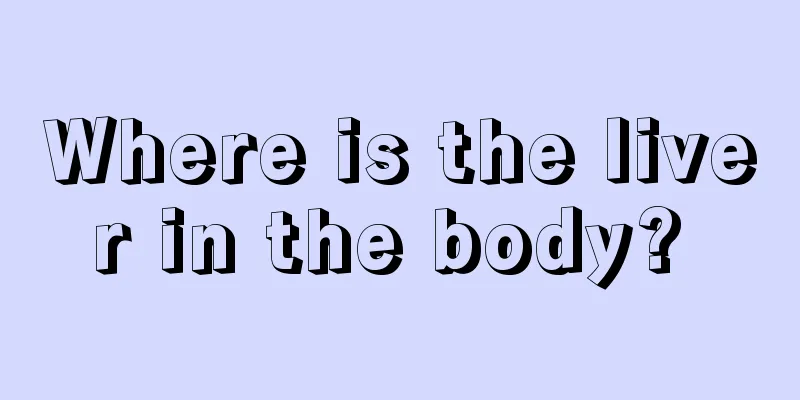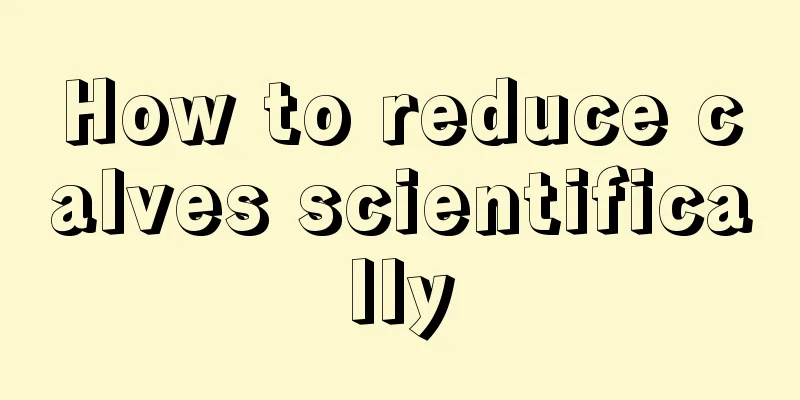Where is the liver in the body?

|
The liver is a very important organ in the human body. The main function of the liver is to secrete bile, which has a good detoxification effect and participates in the body's metabolism. The liver also has the hematopoietic function. If there is a problem with the liver, it can easily cause a series of diseases. Even if there is a problem with the liver's immune defense ability, it can lead to the occurrence of some liver diseases. So where is the liver in the body? The liver is located in the upper abdomen, below the diaphragm. Its main physiological functions are harmonization, liver,. The liver and gallbladder are directly connected to each other and are the exterior and interior of each other. The liver meridian runs through the flanks, lower abdomen, and external genitalia, so diseases in these areas are often treated from the perspective of the liver. Liver regulates the flow of qi The liver is responsible for the regulation of qi, which generally refers to the comprehensive physiological functions of liver qi such as dredging, regulating, ascending, and discharging. The ancients used the harmonious and smooth image of wood energy to compare the liver's function of dispersing and venting, and therefore attributed it to wood in the five elements. Therefore, "Su Wen Ling Lan Secret Classic" says: "The liver is the general's office, from which strategies and plans come", and "Su Wen Liu Jie Zang Xiang Lun" says: "The liver is the root of exhaustion and the residence of the soul". The liver's function of regulating emotions is mainly manifested in three aspects: regulating mental emotions, promoting digestion and absorption, and maintaining the circulation of qi, blood, and body fluids. 1. Regulate mental emotions. Traditional Chinese medicine believes that human mental activities are not only controlled by the heart, but also related to the liver's function of dispersing and releasing. If this function of the liver is normal, the human body can better coordinate its own mental and emotional activities, which manifests as a cheerful spirit, a good mood, and a sharp mind; if the catharsis is insufficient, it will manifest as depression, worry, boredom and crying, belching and sighing, chest and flank tightness, etc.; if the catharsis is excessive, it will manifest as an excited state, such as irritability, dizziness, pain in the head, insomnia, etc. 2. Promote digestion and absorption. The liver's function of dispersing and discharging helps the spleen and stomach to rise and fall and the secretion of bile, so as to maintain normal digestion and absorption functions. If the liver fails to release its energy, it may affect the rise and fall of the spleen and stomach and the excretion of bile, resulting in symptoms of abnormal digestive function, such as loss of appetite, indigestion, belching and acid reflux, or abdominal distension, diarrhea, etc. Chinese medicine calls this "liver-stomach disharmony" or "liver-spleen imbalance." 3. Maintain the circulation of Qi, blood and body fluids. The liver's function of dispersing qi directly affects the regulation of qi. If the liver fails to release qi and the qi flow is blocked, swelling and pain in the chest, flanks, breasts or lower abdomen may occur. Qi is the driving force of blood circulation. When Qi flows, blood flows; when Qi stagnates, blood stagnates. If the liver fails to release qi and blood stagnates, stabbing pain in the chest and flanks, and even accumulation of symptoms and lumps may occur. Women may also experience menstrual disorders, dysmenorrhea, and amenorrhea. The liver stores blood The liver has the function of storing blood and regulating blood volume. When the human body is resting or emotionally stable, the body's blood demand decreases, and a large amount of blood is stored in the liver; when working or emotionally excited, the body's blood demand increases, and the liver discharges its stored blood to supply the needs of the body's activities. If the liver's blood storage function is abnormal, it will cause blood deficiency or bleeding. If the liver blood is insufficient and cannot nourish the eyes, the eyes will become dry and blurred, or night blindness will occur. If the tendons and veins are not nourished enough, the tendons and veins will become stiff, the limbs will become numb, and flexion and extension will be difficult. The liver opens to the eyes The visual function of the eyes mainly depends on the nourishment of the liver's yin blood; the liver's meridians are connected to the eye system. Therefore, whether the liver functions normally or not is often reflected in the eyes. For example: Liver blood deficiency can cause blurred vision and night blindness; liver yin deficiency can cause dry eyes and decreased vision; liver fire inflammation can cause red, swollen and painful eyes. The body is connected with tendons, and its beauty is in the claws The liver controls the tendons. The activity of tendons depends on the nourishment of liver blood. Insufficient liver blood and lack of nourishment to the tendons can lead to a series of symptoms as mentioned above. If the heat evil is rampant and burns the liver's yin blood, convulsions of the limbs, clenched jaws, opisthotonos, etc. may occur. Traditional Chinese medicine calls this "internal movement of the liver wind." "Claws" include fingernails and toenails, and there is a saying that "claws are the remnants of tendons." If the liver blood is sufficient, the nails will be rosy and tough; if the liver blood is insufficient, the nails will be dry, soft and thin, or concave and deformed. Protecting the liver should start from daily life. Generally speaking, if you drink too much alcohol, it is easy to develop alcoholic liver disease. Staying up late and not keeping a regular schedule will also have a great impact on the liver. Therefore, it is best to develop regular work and rest habits and good eating habits. Pay more attention to nourishing the liver, nourishing the liver, and protecting the liver. This will make the liver work well. |
<<: Is microwave heating harmful?
Recommend
What causes morning calf pain? Identifying the cause is the key
There have been several spring rains recently, an...
How long does it take for the heart to recover after radiofrequency ablation?
Arrhythmia is a very common disease in normal tim...
Tips to get rid of dandruff and dietary precautions to teach you how to easily deal with dandruff
Everyone has different troubles, so the solutions...
Can bile duct cancer be completely cured
Whether bile duct cancer can be completely cured ...
Inheritance of sweat gland cancer
There are sweat glands in the human body. The rea...
What should we pay attention to when keeping vegetables fresh in the refrigerator?
The birth of the refrigerator has actually made o...
Causes of rectal cancer
Now is an era of rapid development of information...
Eating heavy food often can easily lead to colorectal cancer
Recently, CCTV's popular large-scale food doc...
Experts explain effective breast cancer screening methods
As people pay more attention to women's healt...
Experts answer common prostate cancer symptoms
Prostate cancer is a malignant tumor that is comm...
Symptoms of periodontitis, three symptoms to watch out for
Periodontitis is a common type of malocclusion an...
What to do if you have a headache caused by coughing
Cough is a very common disease in daily life, usu...
What to do with heel gout
Heel gout is actually a phenomenon of joint pain,...
What tests are needed for nasopharyngeal carcinoma?
What tests are needed for nasopharyngeal carcinom...
Intestinal examination is crucial for early detection of colorectal cancer
Colorectal cancer is the third most common malign...









